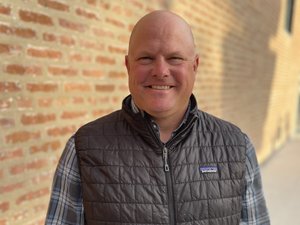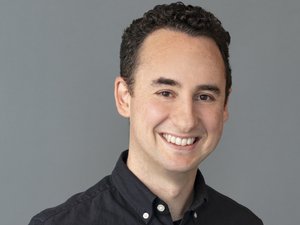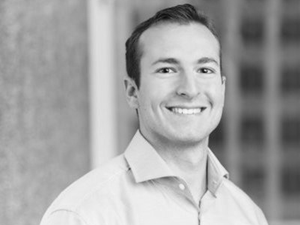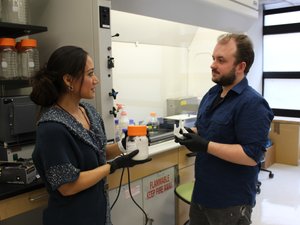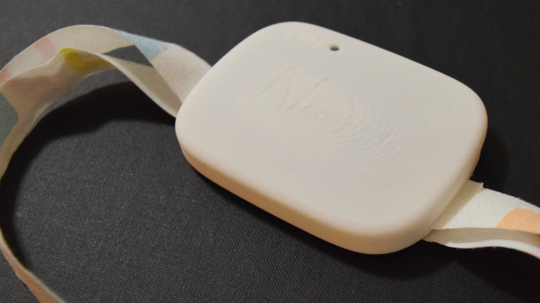
Many tech companies are focused on solving problems that many of us in the U.S. have, but Chicago startup Neopenda is working to solve a particularly pressing problem for those in underdeveloped and low-resourced regions of the world—infant mortality.
Neopenda makes a wearable neonatal vitals monitor, designed for use by healthcare providers in the world’s impoverished regions who are working to reduce the rate of newborn fatalities, an overwhelming reality in many parts of the world.
Founders Sona Shah and Teresa Cauvel launched Neopenda in 2015 while they were both biochemical engineering graduate students at Columbia University in New York. Two years ago, they moved the company to Chicago and now work out of The Shift, a co-working space in the Buena Park neighborhood.
Their device continuously measures four different vital signs: pulse rate, respiratory rate, oxygen saturation and temperature. The device then sends vitals data wirelessly over Bluetooth to a tablet that a nurse can monitor. It also alerts nurses if a child is in distress.
The wearable monitor is still in its prototype stages, but Neopenda plans to test it in clinical trials later this year, and bring it to East African markets in 2019.
Since launching, Shah and Cauvel have visited Uganda three times. On their trips, they have spent time in more than 25 local hospitals, shadowing nurses, interviewing providers and learning about the capabilities of facilities there.
“What we’ve seen in these countries, like Uganda, is that there aren’t enough resources to help care for the massive amount of newborns that are critically ill,” Shah said. “In a hospital, for example, there may be 80 babies and only two nurses. So while a nurse is tending to one baby, another baby that’s in distress maybe just goes unnoticed and dies from preventable causes.”
Similar vital monitors used in the U.S. are largely dependent on reliable electricity and cost thousands of dollars, too expensive for healthcare systems in more economically depressed areas or countries.
“This equipment requires continuous power supply and frequent maintenance, and all of this really just doesn’t translate to a setting where there are often brownouts or no power,” Shah said. “They also can’t afford a $6,000 monitor. Affordability is one of the biggest design constraints that we have.”
Neopenda’s devices are powered by rechargeable, low-powered batteries, and their wireless function makes them ideal in areas without consistent access to electricity. A package of 15 Neopenda monitors and one tablet would cost $2,500, Shah said, adding that they will be willing to negotiate with healthcare providers who may not be able to afford their price.
Right now, Neopenda is only working on developing the vital monitor, but Shah said that in the future, she sees the startup creating other devices, such as tools that deliver oxygen to newborns and vital monitors designed for older children in surgical or intensive care unit settings.
“There’s lots of room and certainly more than enough problems that we can help solve,” Cauvel said. “Newborn mortality is a problem in lots of regions of the world.”
Shah and Cauvel plan to travel to Uganda two to three time this year, with Shah visiting the country next week. She will also be headed to Kenya this year to explore expansion strategies, and hopes to visit more low-resourced countries in the future.
Since launching, Neopenda has raised more than $600,000 in funding. This spring, they plan to launch a $750,000 seed funding round to help them finance clinical trials. Besides Shah and Cauvel, Neopenda has one other employee who works in Uganda, and the company will hire three more people this year, two of which will be based in Chicago and one who will be based in Uganda.
“We try to spend as much time as possible getting feedback from these Ugandan stakeholders,” Cauvel said. “We really want to make this a product that is useful, that lasts and has impact in the field.”
